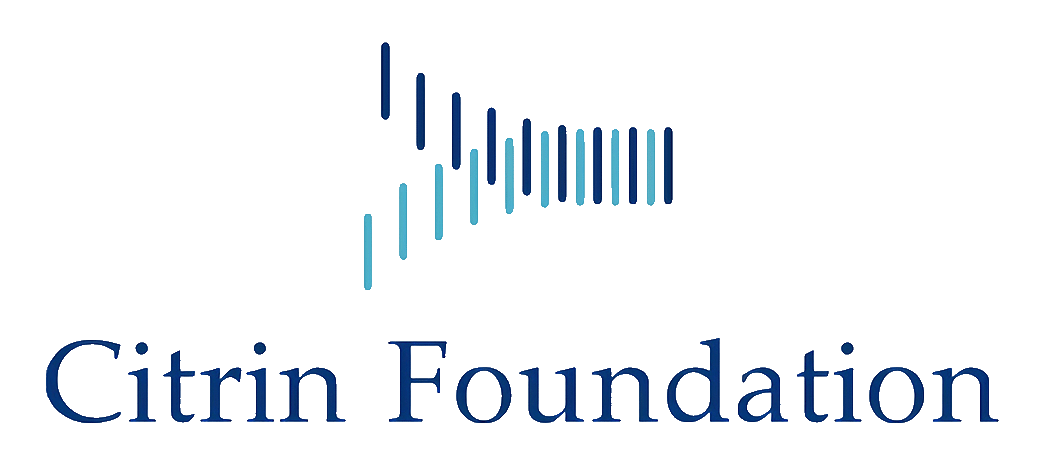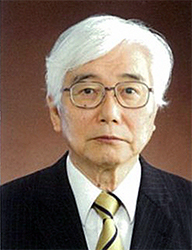
Takeyori SAHEKI
Honorary Advisor
Professor Takeyori Saheki graduated from Graduate School of Medicine, Tokushima University in 1970, and he got a PhD degree at Tokushima University. In 1980, he was appointed as Professor of Biochemistry, Faculty of Medicine, Kagoshima University. At present, he is a Guest Researcher at Department of Hygiene and Health Promotion Medicine, Kagoshima University Graduate School of Medical and Dental Sciences.
Professor Saheki characterized a type of hepatocerebral disease biochemically as adult-onset type II citrullinemia (CTLN2). He discovered the causative gene for CTLN2 and showed that the same gene is the cause of neonatal intrahepatic cholestasis (NICCD). He named the diseases citrin deficiency, and identified the gene encoding mitochondrial aspartate glutamate carrier. Also, Prof. Saheki invented a mouse model for citrin deficiency, citrin and mitochondrial glycerol 3-phosphate dehydrogenase double-KO mouse, and by using the model, characterized pathophysiology of citrin deficiency and developed novel therapeutic procedures for the disease.
Academic Awards: in 2000, from Japanese Society for Inherited Metabolic Diseases, and in 2003 from the Japan Society of Human Genetics.
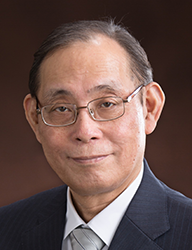
Fumio ENDO
Special Advisor
Dr. Fumio Endo received his M.D. from Kumamoto University in Kumamoto, Japan in 1976. After he received his PhD in 1982, he went to Emory University in Atlanta, Georgia, USA where he worked with Skip Elsas at the Department of Pediatrics, Medical and Biochemical Genetics. After he came back to Japan, he became a faculty member of the Department of Pediatrics at Kumamoto University in 1985. He was Professor and Chairman of the Department of Pediatrics at Kumamoto University since 1997 until he became Emeritus Professor in 2016. He is currently CEO of Kumamoto-Ezuko Medical Center since 2016. He worked as the Chairman of the Japan Society of Inherited Metabolic Diseases from 2007 to 2013. He is the Founder of the Asian Society for Inherited Metabolic Diseases (ASIMD) and is the President of the first Asian Congress for Inherited Metabolic Diseases (2010 Fukuoka).
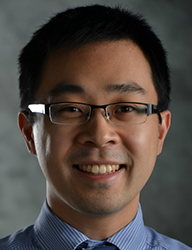
Nicholas AH MEW
Advisor
Nicholas Ah Mew, M.D., is director of the Inherited Metabolic Disorders Program at Children’s National Hospital and is associate professor of Pediatrics at The George Washington University. He is a clinical geneticist and clinical biochemical geneticist whose primary research interests include urea cycle disorders, organic acidemias, and other disorders of ammonia metabolism. He is the principal investigator or co-PI of several projects funded through the National Institutes of Health and Patient-Centered Outcomes Research Institute. Dr. Ah Mew is the Children’s National site-PI and an active member of the NIH-funded Urea Cycle Disorders Consortium (UCDC). He has authored multiple publications and book chapters on hyperammonemia and urea cycle disorders and has lectured internationally on these topics.
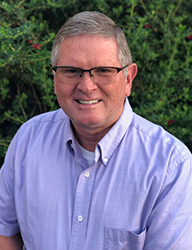
Cary O. HARDING
Advisor
Cary O. Harding, MD, FACMG is Professor of Molecular and Medical Genetics and Pediatrics at Oregon Health & Science University (OHSU). He received his medical degree from the University of Washington followed by pediatric and medical genetics training at the University of Wisconsin-Madison. He is board certified in Clinical Genetics and Clinical Biochemical Genetics. Dr. Harding is a founding fellow of the American College of Medical Genetics and Genomics (ACMGG) and a member of the American Society for Cell and Gene Therapy (ASGCT) and Society for the Study of Inborn Errors of Metabolism (SSIEM). He is the treasurer of the Society for Inherited Metabolic Disorders (SIMD). He is an attending physician in the metabolic clinic at Doernbecher Children’s Hospital and the Medical Director of the Biochemical Genetics Lab at OHSU. He is also a clinical consultant to the Northwest Regional Newborn Screening Program. He serves as co-chair of the Scientific Advisory Board for the National PKU Alliance (NPKUA) and as the Project Director for the PHEFREE Rare Disorders Consortium. Dr. Harding’s basic and clinical research programs are focused upon the development of novel therapies, including gene and cell therapies, for inborn errors of metabolism.
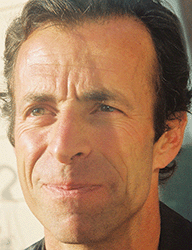
Marc HELLERSTEIN
Advisor
Dr. Hellerstein is Professor of Human Nutrition at the University of California, Berkeley, where he occupies an Endowed Chair (Dr. Robert C. and Veronica Atkins Chair). He is also Professor of Endocrinology, Metabolism and Nutrition in the Department of Medicine at the University of California at San Francisco, where he ran the diabetes clinic at SF General Hospital for 25 years. Dr. Hellerstein’s medical training was at Yale Medical School and he completed a PhD at the Massachusetts Institute of Technology, in addition to medical training in Internal Medicine and Endocrinology and Metabolism.
Dr. Hellerstein’s major research interest has been the measurement in vivo of metabolic fluxes through pathways critical to health and disease, as biomarkers for understanding metabolic control and its disorders, including applications in drug development and clinical diagnostics. This research has resulted in over 330 publications, 80 issued patents and participation on many editorial boards and as an advisor to NASA. Dr. Hellerstein co-founded a medical diagnostics and drug development biotech company, KineMed, Inc., in 2001 and a muscle diagnostic company, Myo Corps, Inc. in 2023.
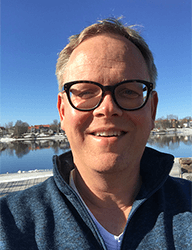
Edmund KUNJI
Advisor
Professor Edmund Kunji holds a PhD in Mathematics and Natural Sciences from the University of Groningen, The Netherlands. He carried out his post-doctoral studies in the group of Dr Richard Henderson at the MRC Laboratory of Molecular Biology, Cambridge. Since 2000, he is a programme leader at the MRC Mitochondrial Biology Unit, University of Cambridge, where he works with his team on the role of mitochondrial transport proteins in the translocation of metabolites, cofactors and inorganic ions across the mitochondrial inner membrane. Since 2019, he is Professor of Biophysics in Clinical Neurosciences of the University of Cambridge.
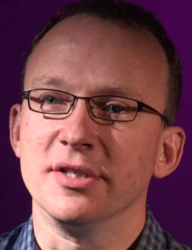
Robin LACHMANN
Advisor
Dr Robin Lachmann leads the Charles Dent Metabolic Unit at University College London Hospitals, one of the largest units in the world looking after adults with inherited metabolic diseases. After training in Internal Medicine he did his PhD on the development of herpes simplex virus vectors for gene delivery to the brain at the University of Cambridge. This led to an interest in lysosomal storage disorders, and then inherited metabolic diseases. His current research interests are in the natural history and management of these conditions.
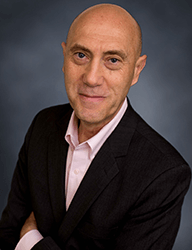
Nicola LONGO
Advisor
Nicola Longo MD PhD is a professor of Pediatrics, adjunct professor of Pathology, and Adjunct Professor of Nutrition and Integrative Physiology at the University of Utah School of Medicine. Dr. Longo earned his M.D. and Ph.D. in Molecular Biology at the University of Parma School of Medicine in Italy. He received residency and fellowship training in pediatrics, medical genetics, and clinical biochemical genetics at Emory University in Atlanta, Georgia. He joined the University of Utah in 2001 and is now the Director of the Metabolic Service, Co-Director of the biochemical Genetics laboratory at ARUP, Director of the Fellowship Training Program in Medical Biochemical Genetics, and Chief of the Division of Medical Genetics. He is an expert in inherited metabolic diseases and is intimately involved in the treatment of patients with these diseases at Primary Children’s Medical Center. His basic and clinic research covers disorders of fatty acid oxidation and carnitine metabolism and the development of novel treatments for metabolic disorders including phenylketonuria, organic acidemias, urea cycle disorders, and lysosomal storage disorders.
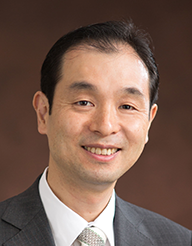
Kimitoshi NAKAMURA
Advisor
After graduating from Kumamoto University, he joined the Department of Pediatrics, Kumamoto University. After receiving his PhD, he completed fellowship training in the Biochemistry Laboratory in Faculty of Medicine, University of Alberta, Canada. He became a Research Associate at the Institute of Developmental Medicine, Kumamoto University in 2000, an Assistant Professor at the Department of Pediatrics, Kumamoto University in 2001, an Associate Professor in 2014, and a Professor in 2017. He has been involved in research on amino acid metabolism disorders, urea cycle disorders, organic acid metabolism disorders, and lysosomal disease, as well as early diagnosis by newborn screening and treatment of pediatric intractable diseases. He is a member of the executive committee of the Genetic Medicine Seminar of the Japan Society of Human Genetics and the chairperson of the seminar committee of the Japanese Society for Inborn errors of Metabolism and is involved in post-graduate education programs. He is the leader of the working group to develop guidelines for inborn errors of metabolism including citrin deficiency as a principal investigator of the Intractable Diseases Research Group (Nakamura Group) of the Ministry of Health, Labour and Welfare.
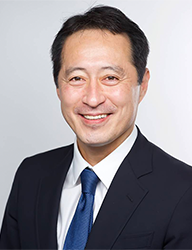
Kimihiko OISHI
Advisor
Dr. Kimihiko Oishi is a Professor and the Chair of the Department of Pediatrics at Jikei University School of Medicine.
He received his medical degree from Jikei University School of Medicine in Tokyo, Japan, followed by a Pediatrics residency at Jikei University Hospital. After his research fellowship in a molecular cardiology laboratory at Icahn School of Medicine at Mount Sinai in New York, USA, he completed his Pediatrics Residency and Medical Genetics Fellowship at Mount Sinai Hospital.
After completing his fellowship, he joined the faculty at Icahn School of Medicine at Mount Sinai as an attending physician for the Program for Inherited Metabolic Diseases Clinic with a special interest in the mechanism of disease and development of new therapies for inborn errors of metabolism (IEM). He was also appointed as an Assistant Professor for the Department of Genetics and Genomic Sciences and Department of Pediatrics.
Dr. Oishi is a recipient of the Urea Cycle Disorder Consortium Fellowship with a project of clinical and molecular characterization of citrin deficiency in the US. With his leadership, his team in Mount Sinai made the English version of Prof. Saheki’s citrin deficiency book available for the Citrin Foundation. With his clinical and basic science training background in Japan and the United States and Dr. Oishi has medical license and board certifications in pediatrics and clinical genetics in these two countries.
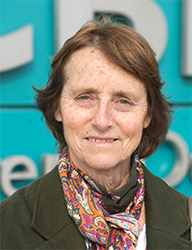
Jorgina SATRÚSTEGUI
Advisor
Professor Jorgina Satrústegui is a Professor of Biochemistry and Molecular Biology at the Centro de Biologia Molecular Severo Ochoa (CBMSO), of the Universidad Autónoma de Madrid, Spain.
Professor Satrústegui obtained her PhD in Madrid, carried out postdoctoral research in Massachusetts General Hospital (Harvard) and the Johnson Foundation (UPenn), and was appointed as Professor at the Autonomous University of Madrid in 1993. She leads a research laboratory which over the years focused on the study of a new system to transduce calcium signals to mitochondria, which relies on the use of calcium regulated mitochondrial carriers. These are:
- the aspartate-glutamate carriers, AGC1/ Aralar/ Slc25a12 and AGC2/ Citrin/ Slc25a13, components of the malate aspartate NADH shuttle; and
- the ATP-Mg/Pi carriers, SCaMC1/ APC1/ Slc25a24, SCaMC2/ APC3/ Slc25a25, and SCaMC3/ APC2/ Slc25a23 which participate in regulating the total adenine nucleotide content of mitochondria.
She is specifically interested in their role in transducing calcium signals to mitochondria in neurons, as compared to the role of the mitochondrial calcium uniporter, and she has addressed these studies with the help of knock-out (KO) mice. Another main concern of her lab is to understand the role of these carriers in human disease. Particularly, disease related to mutations in these carriers, such as AGC1 deficiency.
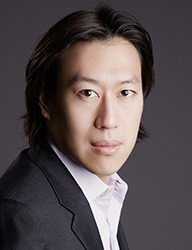
Stephen Leon YANG
Advisor
Stephen is Head of Strategy for Immunology at Novartis, where he is responsible for coordination of enterprise-wide research, development, commercialization and business development activities within the therapeutic area. He has more than two decades of experience in biopharmaceutical industry investment management, financial analysis and strategic research. Stephen has a passion for supporting the creation and distribution of transformational therapies in areas of unmet need.
Stephen was previously Founder and Chief Investment Officer of Curam Capital Management, a London-based life science investment fund. During his career in asset management, he focused on investing in healthcare industry transformations from clinical, scientific, regulatory and legislative perspectives.
Prior to Curam, Stephen created and led global healthcare investment teams at Man Group GLG, Citi Principal Strategies, Tisbury Capital and Perry Capital in London, Hong Kong and New York. He started his career at Salomon Smith Barney as an M&A advisor for clients in the biotech and technology sectors.
Stephen received a Masters degree in chemistry from Harvard University and a Bachelors in chemistry from Princeton University.
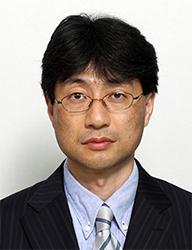
Masahide YAZAKI
Advisor
Professor Masahide Yazaki graduated from Shinshu University School of Medicine, Matsumoto, Japan (M.D.) in 1992 and he graduated from the Graduate School of Medicine, Shinshu University in 1998 (Ph.D.). He worked as a neurologist in Shinshu University Hospital. In 1999, he moved to Department of Pathology and Lab Medicine, Indiana University, USA as a postdoctoral fellow to study the pathogenesis of protein-misfolding disease such as amyloidosis. He returned to Shinshu University in 2002, and became Associate Professor, Department of Neurology and Rheumatology, Shinshu University School of Medicine in 2011. In 2014, when the Institute for Biomedical Sciences was established in Shinshu University, he moved to Department of Biological Sciences for Intractable Neurological Diseases, Institute for Biomedical Sciences as an Associate Professor. There, he is continuing basic and clinical research on amyloidosis and citrin deficiency. In 2017, he was promoted to be a Professor at the School of Health Sciences and Institute for Biomedical Sciences, Shinshu University.
To date, Professor Yazaki has performed clinical and pathological studies of CTLN2 patients in Japan to elucidate the clinical pictures of CTLN2 and to establish the therapeutic strategy for CTLN2 patients.
